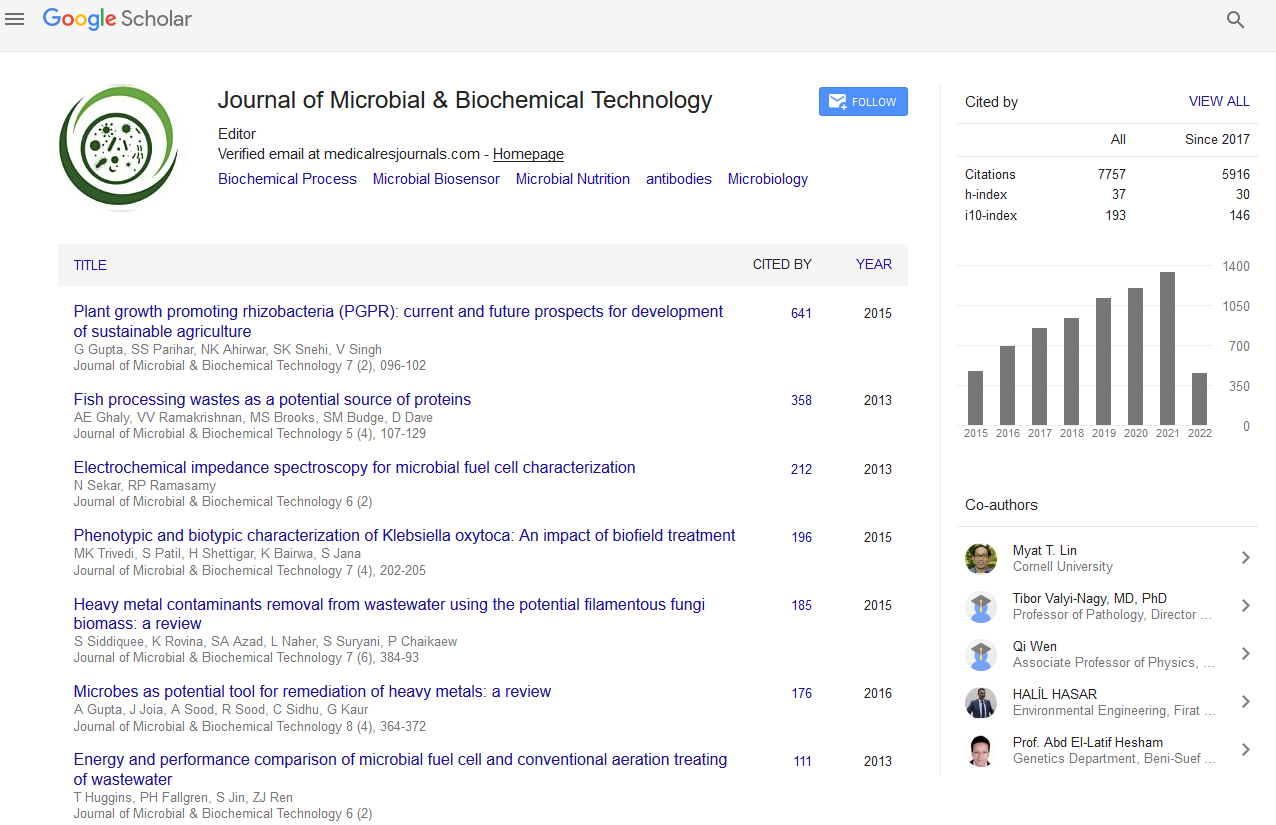PMC/PubMed Indexed Articles
Indexed In
- Academic Journals Database
- Genamics JournalSeek
- Academic Keys
- JournalTOCs
- China National Knowledge Infrastructure (CNKI)
- Scimago
- Access to Global Online Research in Agriculture (AGORA)
- Electronic Journals Library
- RefSeek
- Directory of Research Journal Indexing (DRJI)
- Hamdard University
- EBSCO A-Z
- OCLC- WorldCat
- SWB online catalog
- Virtual Library of Biology (vifabio)
- Publons
- MIAR
- University Grants Commission
- Geneva Foundation for Medical Education and Research
- Euro Pub
- Google Scholar
Useful Links
Share This Page
Journal Flyer

Open Access Journals
- Agri and Aquaculture
- Biochemistry
- Bioinformatics & Systems Biology
- Business & Management
- Chemistry
- Clinical Sciences
- Engineering
- Food & Nutrition
- General Science
- Genetics & Molecular Biology
- Immunology & Microbiology
- Medical Sciences
- Neuroscience & Psychology
- Nursing & Health Care
- Pharmaceutical Sciences
Abstract
Inhibitory Activity of Combretum zeyheri and its S9 Metabolites against Escherichia coli, Bacillus subtilis and Candida albicans
Charlotte Masengu, Faith Zimba, Rumbidzai Mangoyi and Stanley Mukanganyama
Medicinal plants are therapeutic resources used by traditional population for health care, thus, it is important to evaluate the mechanism of action of herbal plants so as to validate their efficacy and avoid possible toxic effects. The water and methanol leaf extracts of Combretum zeyheri, medicinal plant from Zimbabwe were screened for antibacterial activity against Escherichia Coli and Bacillus subtilis using the agar disc diffusion method. Minimum inhibitory concentration (MIC) and minimum bactericidal concentration (MBC) values of the plant extracts were determined using the broth dilution method. Drug transport assays were conducted to test the potential of plant extracts as inhibitors of drug efflux using in Rhodamine 6G. The effect of Combretum zeyheri plant S9 metabolites on growth of Candida albicans was investigated using S9 fractions from 8 week old male Sprague-Dawley rats. Results showed that the plant extract had antibacterial activity against E. coli and B. subtilis, with the aqueous extract exhibiting a greater inhibition of growth than the methanol extract. The plant extract also showed inhibitory effects on drug efflux in all the three organisms suggesting that the antimicrobial actions could partly be due to inhibition of drug efflux pumps. The S9 metabolites of C. zeyheri also had an inhibitory effect on growth of C. albicans, suggesting they may be inhibitors of the growth of Candida albicans in vivo. Combretum zeyheri, therefore, has significant antimicrobial activity and, therefore, has a basis for its use in traditional herbal medications for the treatment of a broad range of microbial infections. The antifungal effects may be mediated via both parent extracts and their metabolites.


